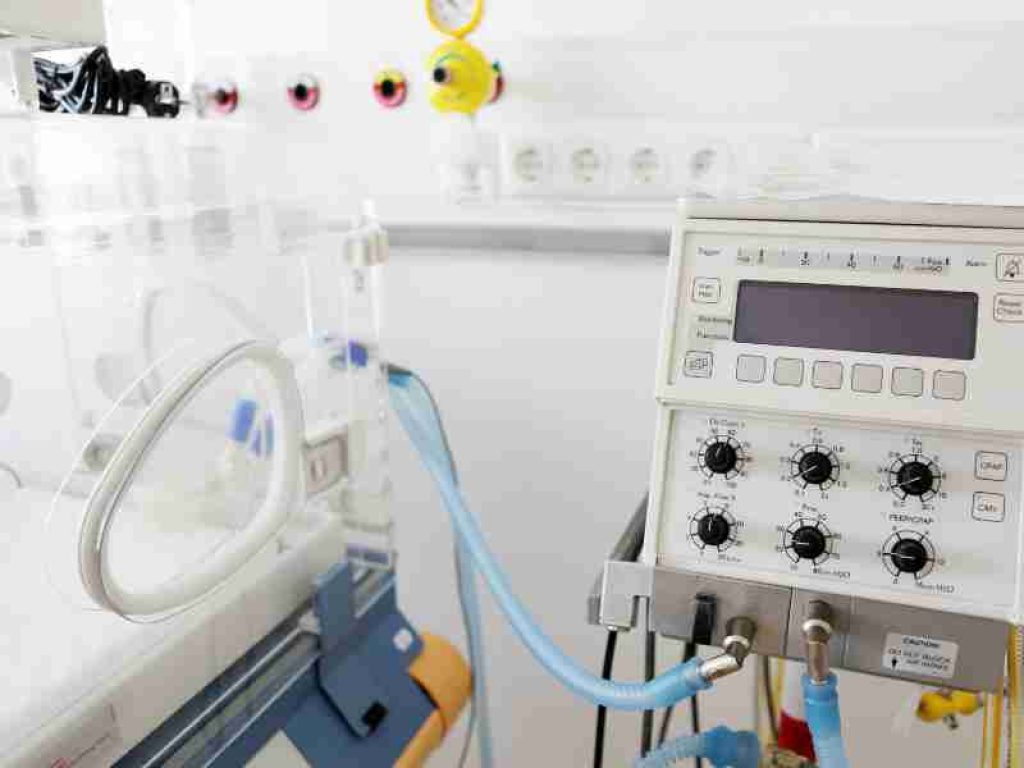
How To Become A NICU Nurse?
Nursing in the NICU is a subfield that focuses on the unique needs of newborns with conditions like illness, prematurity, or congenital disabilities. Nurses who work in neonatal intensive care units (NICUs) are RNs who have specialty training or certification in caring for nurses. Neonatal nurses need to have an ADN or BSN.
The individuals who work in the Neonatal Intensive Care Unit (NICU) are even more exceptional than the average nurses. These devoted individuals care for some of the most vulnerable patients: neonates born unwell or prematurely. Moreover, they are on the front lines of assisting anxious parents through what can be a harrowing ordeal.
Read on to learn more about the requirements to become a NICU nurse and the unique contribution that can be made by individuals who choose this path.
What is a NICU nurse?
There is a special kind of nurse called a neonatal nurse whose job is to care for infants and toddlers under the age of two. Newborns with heart defects, congenital diseases, infections, and other medical issues are the focus of their work. The field of neonatal nursing is one of the most demanding and rewarding in the nursing profession. Still, it also involves high levels of observation, empathy, speed of response, and organization.

Nursing care in neonatal intensive care units (NICUs) typically involve a Neonatal nurse. They may also work in community health centers, home health agencies, hospitals, community groups, etc.
Levels Of Neonatal Care
Depending on the care, a neonatal nurse may provide one of several services. It has been determined by the American Academy of Pediatrics (AAP) that there are four distinct levels of neonatal care that a care or other medical facility can give, with higher levels representing increasingly advanced medical attention.
Level I: Newborn Care:
First-level neonatal nursing care is provided in “well newborn nurseries,” and is intended for healthy infants. Premature infants between 35 and 37 weeks of gestation and sick newborns delivered before 35 weeks of gestation receive routine postnatal care here from nurses until they are transferred to other hospitals. Level I neonatal nursing nurses are trained to perform neonatal resuscitation, administer vaccines, check for hearing and vision, bathe newborns, and instruct new parents on proper infant care.
Level II: Enhanced care:
Babies delivered at or after 32 weeks who weighed more than or equal to 1500 g at birth and have moderate health problems are cared for in these nurseries. Neonatal nurses in intensive care nurses can perform all level I nursing duties. They also provide care with food and medicine for babies who have had intense therapy as neonates. Infants who have difficulty breathing can get temporary help with ventilation until their condition improves, or they may need to be taken to a medical facility that offers more specialized care.
Level III: Intensive Care:
Neonatal Intensive Care Units (NICU) provide access to constant ventilation, high-frequency respiration, advanced imaging technology and sustained life support if necessary. Neonatal intensive care units (NICUs) require nurses with specialized training at the Level III level. The facility provides care for premature babies (those born at less than 32 weeks) and neonates with serious medical or surgical issues.
Level IV: highest care:
Level IV NICUs, often known as regional NICUs, are affiliated with larger hospitals that perform complex surgical procedures to treat rare or life-threatening disorders in infants. Mechanical breathing, several types of advanced surgery, including “open-heart” treatments, and extracorporeal membrane oxygenation are all services they offer (Extracorporeal Membrane Oxygenation). Regional NICU teams include neonatal nurses, pediatric medical subspecialists, and other experts. Infants with care-threatening conditions born between 22 and 24 weeks of gestation are treated there.
What does NICU Nurse do?
Nurses who work in neonatal intensive care units (NICU) have multiple duties to carry out. Their duties may range from performing CPR on newborns to teaching new mothers how to breastfeed. Together with other medical specialists, such as physicians, midwives, and dietitians, NICU nurses care for premature and sick infants. They take the height and weight of babies, and they may even be present for births.
The nurses at the neonatal intensive care unit (NICU) are responsible for monitoring the regularity of the infants’ vital signs, including their heart rate, temperature, respiration rate, and feeding. More importantly, they play a vital role in helping the new parents adjust to life with their newborn.
A neonatal nurse’s typical responsibilities include the following:
- Conducting diagnostic tests to identify and assess issues;
- Baby health monitoring;
- Recording relevant patient information;
- Assigning patients to treatment plans and distributing prescribed medications
- Teaching new parents essential skills in infant care;
- Discussing the baby’s care and health with the parents
What Does a Day in the Life of a NICU Nurse Look Like?
The duties of a NICU nurse are varied and challenging, ranging from caring for healthy newborns to closely observing critically ill patients. Most NICU nurses work 12-hour shifts, which requires them to be on call around the clock. While much larger public and private hospitals offer neonatal intensive care units (NICUs), certain smaller hospitals and clinics may lack them.
There will be moments when NICU nurses have more free time than those working in a regular hospital. Because of the critical importance of rest and sleep for the development of neonates, nurses in the NICU often offer direct care to patients every 3 to 4 hours and observe them in the intervening periods.
Where do NICU Nurses Work?
Newborn intensive care unit nurses might seek work in either public or private healthcare facilities. Rarely, but occasionally, NICU nurses will also work in home health care or as medical emergency response team members.
It’s not uncommon to see nurses working in the neonatal intensive care unit in the following settings:
- Hospitals
- Medical Facilities Specializing (NICUs)
- Groups Working to Improve Community Health
- Emergency Medical Services Transportation and Evacuation
- Home Health Services
The responsibilities and functions of Neonatal Intensive Care Unit Nurses are?
What follows is a breakdown of the many stages of neonatal care and the tasks associated with each:
- Nurses working in Level I Newborn Intensive Care Units (NICUs) concentrate on providing post-birth care for babies who are healthy. Newborns who are physiologically stable at 35 to 37 weeks of gestation are cared for in these facilities by registered nurses. They aid in stabilizing premature or unwell newborns until they can be transported to a hospital with adequate neonatal care.
- Level II NICUs (Advanced Neonatal Care): RNs in these units care for newborns who are not as dangerously ill but still need assistance breathing, eating, or taking medications. Babies who require extra care are usually located in smaller medical centers with Level II NICU units.
- Level III NICUs (Sub-specialty Newborn Care) provides nursing care for premature infants born before 32 weeks of gestation and sick newborns of any age. Highly specialized Level III NICUs feature a gamut of pediatric sub-specialties, sophisticated respiratory support systems, and modern imaging technologies.
- Infants born as early as 22–24 weeks of gestation get care in Level IV NICUs (Regional NICU; Highest Level of Neonatal Care). Mechanical breathing, including high-frequency ventilation, is available at level IV NICUs, as are a variety of complex surgeries, such as the “open-heart” procedures used to repair congenital heart abnormalities. Extracellular membrane oxygenation (ECMO) is available in several level IV NICUs.
What abilities do Neonatal Nurses possess?
A high level of organization, flexibility and the ability to set priorities efficiently will be essential given that you may be accountable for infants with a wide range of healthcare requirements. You’ll have excellent observational skills, the ability to evaluate patients, and the initiative to choose the most appropriate action.
You should also be able to empathize with and comprehend the parents of the infants you care for. You’ll also need the ability to operate well within a multidisciplinary team and a solid grasp of newborns’ physiological and psychological requirements.
How to become a NICU Nurse?

Here are some of the first things you may do to begin your career as a nurse in a neonatal intensive care unit:
Complete the program for RN nursing:
Getting a nursing degree from a school recognized by your state’s nursing board is the first step toward a neonatal intensive nursing unit career. Courses like these are common in nursing education programs:
- Anatomy and Physiology
- Biology
- Chemistry
- Psychology
- Microbiology
- Statistics
Obtain your RN degree:
Those seeking to obtain their Bachelor of Science in Nursing may choose to start with an Associate Degree in Nursing (ADN) program as a less intensive option. Becoming nursing requires only two years of study with an ADN. Even though ADNs are in high demand, BSN-only facilities do exist.
Once you’ve met all the requirements, the final step in becoming a registered nurse is to take and pass the National Council Licensure Exam for Registered Nurses (NCLEX-RN). In doing so, you will earn your registration as a registered nurse. After obtaining your ADN or BSN degree, you will be eligible to take this test.
Get hands-on training in a medical setting:
As soon as you pass the NCLEX-RN, you can start working in a clinical setting. It is recommended that fresh graduates and nurses who wish to transfer to the NICU have at least two years of clinical experience in neonatal care, with a particular emphasis on the following:
- Birthing Process
- Pediatrics
- Mammal/Infant (Maternal-Child)
The neonatal intensive care unit (NICU) at certain hospitals even hires recent college grads. Those who wish to enter the NICU field typically receive a fellowship.
Earn your credentials:
A NICU nurse’s education shouldn’t end with being a registered nurse and gaining clinical experience; they may also choose to pursue certifications to progress their nurses and improve their abilities. The Neonatal Resuscitation Program is one such accreditation (NRP).
Nurses working in the NICU are typically required to acquire their NRP certification prior to or shortly after beginning employment. The Neonatal Resuscitation Program (NRP) educates NICU nurses on providing the best possible care for infants who are not doing well.
In this article, we’ll go over the following:
- Cardiopulmonary Resuscitation (CPR)
- Epinephrine, atropine, and adenosine are examples of life-saving drugs.
- Using a machine to assist the baby’s breathing (mechanical ventilation).
- National Certification Corporation offers specialized certificates for NICU nurses (NCC). Valid certifications include:
- Neonatal nursing for Preterm Infants
- Expertise in Neonatal Intensive Care Nursing
Critical Care Registered Nurse- Neonatal (CCRN-Neonatal) is another recognized credential for those interested in working in neonatal care. Nurses interested in obtaining this certification can find work in various settings, as outlined by the American Association of Critical Care Nurses.
- NICUs
- Hospitals with specialized cardiac care units
- Isolated Critical Care Units/Intensive Care Units
- Critical Care Units for Medical and Surgical Patients
- Trauma centers
- Flights for patients in critical care
- Expertise in handling neonates in critical or neonatal condition
If you wish to work in a Level III or Level IV NICU, these certifications will make you a more competitive candidate for nursing jobs in that setting. In order to maintain your NICU nursing certification, you must complete necessary continuing education courses, as well as possess an up-to-date and unrestricted RN license, a requirement also shared with other accredited professions.
Check out job postings:
You can start looking for a job as a NICU nurse once you have completed the necessary training and education. Before writing your CV, it is essential to investigate specific NICU nursing roles of interest.
Construct a Resume:
Once you’ve identified promising openings for NICU nurses, tailor your application materials to each position by pulling key phrases from posted job descriptions. When you’re ready to apply for a position, you can do so through the website provided once you’ve finished preparing your résumé.
Take advantage of opportunities to further your education:
Many NICU nursing programs offer Master of Science in Nursing (MSN) degrees via two-year Advanced Practice NICU Nursing programs, which may interest NICU nurses interested in expanding their careers. Newborn Intensive Care Unit Nurse Practitioners possess advanced training and education, qualifying them to provide a heightened level of care and treatment for infants.
What challenges are associated with working in the Neonatal Intensive Care Unit (NICU)?
Working at a neonatal intensive care unit (NICU) requires a unique personality type. Caring for babies fighting for their lives presents a huge challenge, especially in the more advanced NICUs. The use of state-of-the-art technology is not a guarantee of a baby’s survival in every circumstance. Nurses and Nurse Practitioners strive to create strong connections with not only the baby, but also the entire family.

Nurses often feel a profound sense of loss and grief when a newborn dies in their care. In addition to comforting patients’ loved ones, nurses need to be able to lean on those same people when they need help. The emotional toll of tending to infants in critical condition is considerable. Stress and burnout among caregivers is also major problem. Nurses may experience sadness, anxiety, or irritability at home.
NICU nurses’ emotional health depends on their ability to recognize signs of caregiver burnout and help their patients discover positive ways to deal with stress. Another difficulty is the overuse of alarms. Both registered nurses and nurse practitioners put in many hours each week. Multiple alarms ring in NICUs to direct staff members. Alarms are supposed to keep patients safe, but alarm weariness might put them at risk.
With extended exposure, caretakers may become desensitized to alarms, potentially leading to them being overlooked, ignored, or disregarded. Caretakers who hear the same sirens for hours may begin to disregard them. Fortunately, there are methods used by many institutions to lessen the alarm fatigue of staff members who must respond to them.
Career Advancement for NICU Nurses
Opportunities for progress in the field of neonatal nursing are plentiful. You can enhance your career in the neonatal intensive care unit (NICU) and qualify for a variety of clinical leadership roles by obtaining a master of science in nursing (MSN) or doctor of nursing practice (DNP) degree and gaining experience in the field.
Neonatal nurse practitioners are one career path (NNP). In addition to two years of relevant nursing experience, this post requires a master’s degree. To become an NNP, you must pass the National Certification Commission’s exam.
A few other options are:
- Nurse-midwife,
- Nurse educators,
- Head Nurse,
- Nurse practitioners and clinical nurse specialists;
- Expert in the field of developmental care.
Salary and Job Outlook Of NICU nurse
It has been estimated that a NICU nurse in the United States can expect an annual pay of $108,184. The lowest estimated compensation is $49,000, with the highest estimated salary reaching $244,000. This figure indicates the midpoint of the estimated range.
As if the rich income weren’t enough, the career prospects for all RNs, especially NICU, are also positive. From 2020 to 2030, the BLS predicts a 9% increase in demand for RNs. About 194,500 opportunities in this industry are predicted to become available each year.
Conclusion
Nursing in a neonatal intensive care unit is one of the most challenging and satisfying professions. Here is a guide to getting started in that sector if you have what it takes to work in a neonatal intensive care unit.
Although working in the neonatal intensive care unit (NICU) can be demanding, it is ultimately rewarding. The employment security, high compensation, and satisfaction from helping newborns experience life’s wonders are just the icing on the cake. Even though your patients are very few, the impact of your healthcare assistance will be tremendous.







